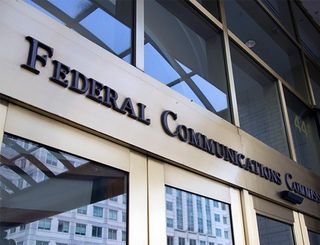FCC Auction Process Vote Date Firm at Aug. 6

After a contentious FCC monthly meeting Thursday - foreshortened when two controversial topics about the broadcast spectrum incentive auction were dropped from the agenda late Wednesday - FCC chairman Tom Wheeler faced a news conference where, predictably the major interest was in those two topics.
"I feel comfortable that we will be able to issue a public notice [about the auction] in three weeks," Wheeler said, insisting that his Aug. 6 target date will stick for a vote on auction procedures.
"We are working towards a solution that will make sure that there is a majority vote," he said. "When we bring it up, that will happen." He offered no details about how he plans to assure that both Democrats vote with him.
Although he sidestepped the question of whether he can tailor the "duplex gap" issue in a way that will convince Commissioner Jessica Rosenworcel to vote with him, Wheeler expounded extensively on the data that explain solutions for spectrum repacking, which is believed to be at the core of Rosenworcel's dissatisfaction with the current plan. Several reporters noted that Wheeler pulled the auction items because of Rosenworcel's reticence rather than because of congressional or NAB requests based on Friday's release of limited repacking simulations.
Wheeler acknowledged that "some of the things being proposed by the duplex gap [simulations are] going to negatively affect the cash that's available to buy spectrum from broadcasters."
He said that of the 210 U.S. markets, only six "may be affected" by the proposal to repack some broadcast channels into the "gaps" originally intended for unlicensed wireless use.
"That's 3% of the markets in the country that may be affected," he said. "There is a weakest link - a lowest common denominator - problem here that you have to make a decision: should I allow that to infect and affect the entire national situation? There is a daisy chain effect."
Broadcasting & Cable Newsletter
The smarter way to stay on top of broadcasting and cable industry. Sign up below
"So what we're talking about here is that there are consequences to not dealing with the duplex gap," Wheeler said. He explained that avoiding the solution would mean 25% less revenue generated by the auction and hence 25% less money to buy spectrum from broadcasters.
"The amount of spectrum available for the spectrum reserve decreases as well once you fall below 84 MHz, which would happen in this kind of situation," he said.
That remark paved the way for a string of questions about expanding the spectrum reserve beyond the current 30 MHz level.
Wheeler acknowledged that "there are some people who are arguing there should be no spectrum reserve" and others who say "it should be bigger."
In response to a question about changing the triggers for determining the size of the reserve, Wheeler merely said that he considers the topic "a watershed policy... to promote competition," but offered no specifics about modifying the amount of spectrum.
Separately, in response to a question about the last week's request from four Senators that the FCC should examine cable pricing, Wheeler offered a procedural rebuff. He noted that on its Form 477, which is sent to carriers and cable operators, "the Commission made a decision before I got here not to include price questions."
"We're going to respond with the information that we have and identify potential sources of other information," he said.
At a separate news conference following Wheeler's remarks, the Commission's two Republican members offered their views on the auction rules vote and the spectrum reserve.
Commissioner Ajit Pai said that market forces should determine how the spectrum auctions proceed.
"To the extent the agency is essentially picking winners and losers, ultimately that won't be good for the government," he explained "It depresses auction revenue, it won't be good for companies that aren't allowed to bid on spectrum [or] to the highest value use on it. ... Ultimately it won't be good for consumers because we either delay and/or impede deployment of that spectrum for wireless use."
Pai said he was ready to vote for the spectrum plan "to the extent it would not have expanded the reserve beyond the 30 MHz that the Commission previously adopted."
"I was disappointed that we didn't have a chance to register those views, but ultimately I hope we do have a chance to make sure that the agency doesn't further extend the micromanagement of winners and losers."
Commissioner Michael O'Rielly also said that he does not support a change in the reserve policy. He castigated companies that originally decided not to participate in the auction, but have changed their plans.
Contributor Gary Arlen is known for his insights into the convergence of media, telecom, content and technology. Gary was founder/editor/publisher of Interactivity Report, TeleServices Report and other influential newsletters; he was the longtime “curmudgeon” columnist for Multichannel News as well as a regular contributor to AdMap, Washington Technology and Telecommunications Reports. He writes regularly about trends and media/marketing for the Consumer Technology Association's i3 magazine plus several blogs. Gary has taught media-focused courses on the adjunct faculties at George Mason University and American University and has guest-lectured at MIT, Harvard, UCLA, University of Southern California and Northwestern University and at countless media, marketing and technology industry events. As President of Arlen Communications LLC, he has provided analyses about the development of applications and services for entertainment, marketing and e-commerce.

